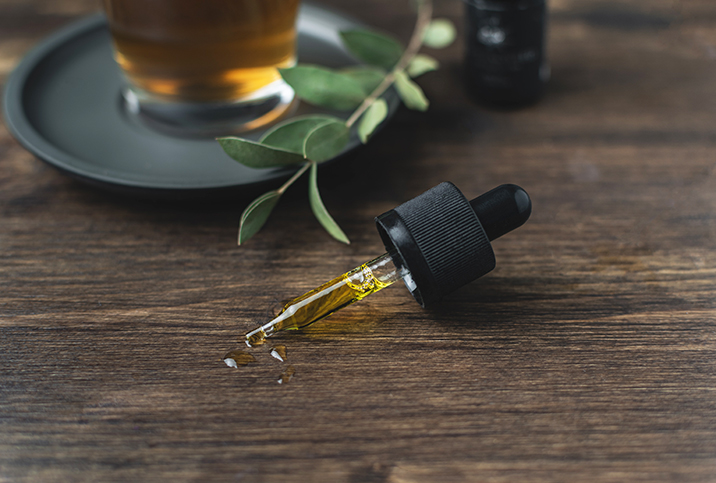Taking Opioids? Keep an Eye on Your Sexual Health

As the medical community continues to make strides in understanding the full implication of opioid use, we are statistically beginning to see a decline in opioid prescriptions and addiction, according to the 2019 National Survey on Drug Use and Health.
Before we get too complacent, we should remember opioid usage is still at an all-time high. And, in addition to dependency risk, opioids can cause sexual dysfunction in both men and women.
How we use opioids
The most common reason for the use of opioids is to treat extreme pain in patients, who have a variety of conditions such as traumatic injury, broken bones or pain related to major surgery. These medications can also be used as a long-term treatment for chronic pain in cancer patients, chronic pain syndrome and fibromyalgia when other pain interventions don't work well enough.
The most commonly prescribed opioids are oxycodone, hydrocodone, codeine and morphine, so it should come as no surprise that these opioids are the most commonly abused.
Opioids are highly effective in treating pain, and can be the most appropriate choice if closely monitored by a healthcare professional. The problem is, over time, the body builds up a tolerance to the drugs, making them less effective at their originally prescribed dosage. To effectively manage pain, the dosage must be increased.
Once at this point, the body has become dependent on the chemical, and stopping the medication abruptly will lead to withdrawal symptoms.
How opioids impact sexual health
Opioid addiction alters your lifestyle, and one side effect in both men and women is sexual dysfunction. Opioid usage can decrease testosterone levels, causing a decreased sex drive and erectile dysfunction in up to 96 percent of male opioid users, according to a report from the International Society for Sexual Medicine.
This same report concluded that regardless of gender, opioid users were found to experience less satisfaction during sexual encounters, which is likely caused by decreased nerve sensitivity. Though men and women both experience sexual dysfunction as a result of prolonged opioid usage, the chemical causes of these effects are different for men and women.
"Long-term opioid use is associated with many adverse effects, such as immunosuppression as well as changes in endocrine function," said Tanika Jackson-Richmond, MSN, E.D., R.N., DON, director of the River Oaks Center for American Addiction Centers. "Though research on the correlation between opioid use and female sexuality is not substantial, studies have shown that opioids inhibit the production of many hormones, including sex hormones that determine menstrual cycles, sexual dysfunctions and depression in women."
Changing your treatment plan
How you adapt your pain management plan should be personal to you and your needs. For example, in men, opioid usage can decrease testosterone levels, and which intervention you take to correct this will vary depending on why you were prescribed opioids initially. Changes can include decreasing the dosage of opioid medications, finding alternative pain relief or, when these approaches are not appropriate, using topical testosterone gel to counteract decreased sexual function.
For women, the effect of opioids on sexual function is not as well-researched, but there are emergent trends. Many female patients report decreased sex drive and sexual satisfaction, which may ultimately impact their ability to achieve intimacy with their partners. These repercussions can cause decreased quality of life and negative mental health issues that further compound sexual dysfunction.
Every patient prescribed opioids should be open in communicating the effects—both positive and negative—of their treatment plan with their physician.
In both men and women, closely monitoring sexual function as well as watching for signs of addiction are highly recommended. This means every patient prescribed opioids should be open in communicating the effects—both positive and negative—of their treatment plan with their physician.
Your doctor may recommend changing your dosage or combining your opioid medication with other interventions to treat your pain more effectively.
Over time, your doctor will likely want to stop your opioid treatment to avoid long-term complications. However, abruptly stopping opioid usage can lead to withdrawal symptoms. Discussing these concerns with your doctor will ensure that a customized treatment plan focuses on slowly weaning your body off the opioids to best avoid these adverse effects.
Talking to your doctor about addiction
As the public becomes increasingly aware of the far-reaching impacts of the opioid epidemic, healthcare facilities have responded by increasing their efforts to provide patients with information and interventions to protect their health.
"We provide our clients with a wide variety of educational material," explained Stephanie Derr, MSN, R.N., director of the Women's Health Division of the South Carolina Department of Alcohol and Other Drug Abuse Services. "We assess for substance use as indicated during clinic visits and provide information and/or referrals for treatment and/or counseling as appropriate."
Regardless of the conditions that you are managing, your treatment plan, medications and overall health goals should be the result of careful consideration from your doctor. Ultimately, though, your understanding of the dosage and impacts of your medication on your physical, mental and sexual health can only occur when you advocate for yourself.


















